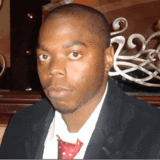As I reflect on the mass shooting that recently took place at a community college in the state of Oregon I am reminded of words from Ravi Zacharias, ” For reasons of pride or race, place, grace, or face, human beings somehow make room for hate.” [1]
Ravi’s words seem ever more relevant when we see the two general solutions that are promoted in the wake of these tragic acts of violence. First there are those who believe access to guns need more restriction. The rationale promoted is that a lesser quantity of guns throughout society will reduce the probability of these tragic incidents. This approach assumes all guns in society are acquired and kept through legal means. This assumption can lead to no law which will impact violence involving illegally acquired weapons.
The second approach is to promote a less regulated approach to gun laws. Proponents of this approach believe that at the very least lawful gun owners should be able to carry in public places like schools and movie theaters so that should a emergency situation present itself individuals will be able to defend themselves and others. There is also the idea that would be mass shooters are more likely to avoid places where they know there is a chance for someone to return fire in self defense. Although I personally agree with the latter approach, I recognize that it doesn’t necessarily prevent an incident, it only gives individuals an opportunity to defend themselves in public place should they so choose.
Who knows? Maybe both approaches have some merit to limiting these events and thereby saving lives. But no matter which legal approach you choose its obvious those intent on violence will find a why to realize those intentions.
The real problem then becomes how to influence the intentions of human beings? How do you impact the central mind, will and emotions of a mass of individuals? How can a society inculcate the idea that every individual has objective and intrinsic value?
No amount of legal changes will solve human problems. There must be a standard beyond the law that compels men to follow. Furthermore individuals throughout society must recognize this transcendent standard if peace is to flourish.
Without this objective moral standard anything can become permissible with the wave of a pen. And even with written law there is no reason it should be kept if there is no transcendent standard to which it corresponds. Without this standard no law can stand up to the resistant questions of “why should I?” and “says who?”.
The philosophers through the centuries have recognized this as the natural law. Its sentiment is captured by William Blackstone in the following …
“This law of nature, being co-eval [co-existent] with mankind and dictated by God himself, is of course superior in obligation to any other. It is binding over all the globe, in all countries, and at all times: no human laws are of any validity, if contrary to this.”[2]
I know the invocation of God and transcendent moral standards immediately turns people off. And every one is an expert in the separation of church and state. But how can a society respond to the human problem of hate? Where will the state ground its law so that it can answer the question says who? Where will individuals receive universally recognized intrinsic value? If these questions aren’t answered and widely understood throughout society, then how will it emphasize that incidents like Umpqua, Sandy Hook, Aurora and all the other are objectively wrong?
___________________________________
[1] Ravi Zacharias, Deliver Us from Evil (Nashville: Thomas Nelson, 1998)
[2] William Blackstone, Commentaries On the Laws of England


Well-written words of truth and reason which an unbelieving world needs to hear.